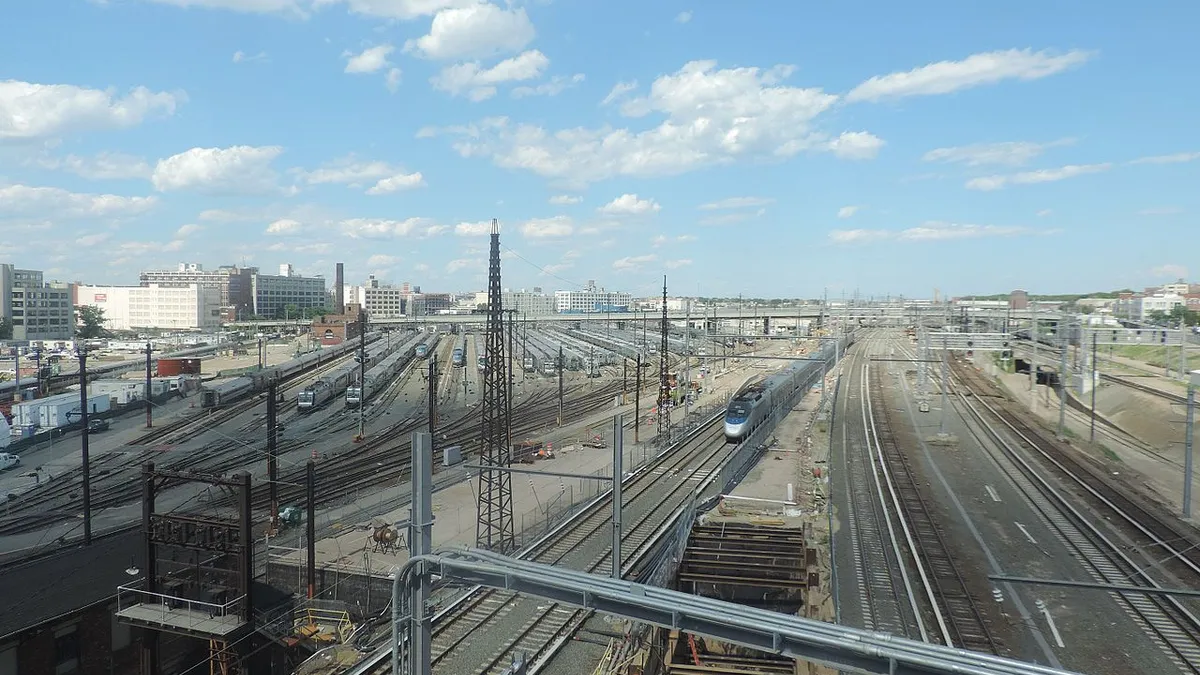Dive Brief:
-
The cost of New York City Mayor Bill de Blasio's proposed redevelopment of Sunnyside Yard, in Queens, NY, has been estimated at between $16 billion and $19 billion, according to a new report from the city’s Economic Development Corporation, Crain’s New York Business reported. The cost would make it the city's largest construction project in recent history.
-
The study focused on a 70-acre section of the 180-acre site, which is where development would likely begin. That portion could hold as many as 15,000 housing units with up to 4,500 marked as affordable, as well as space for schools, retail and community areas.
- Overall, the project is expected to yield up to 24,000 housing units with between 4,200 and 7,200 marked as affordable. The study anticipates a $1.31 billion to $1.53 billion economic boon to the city over a 40-year period.
Dive Insight:
The study is the first step toward bringing the ambitious project to fruition, and it has called for more extensive investigation of transportation operations currently at the site, engineering considerations and urban design to further develop plan.
The project faces numerous challenges yet, as Sunnyside Yard is among the busiest rail sites in the country. New York Gov. Andrew Cuomo, whose office runs the Metropolitan Transportation Authority, has previously rejected the plan, according to DNAinfo.
The proposal is part of De Blasio's stated goal of providing 200,000 new or existing affordable housing units in New York City over the next decade as the city struggles to keep up with demand on the low- and middle-income end of the market. It mirrors a similar development on Manhattan's West Side, the Hudson Yards project, which is expected to deliver a nearly $19 billion economic benefit as well as 20,000 housing units with 5,000 marked as affordable.
Other affordable housing schemes in the city are moving forward, with Monsey, NY-based developer Ader Group recently releasing details for a 474-unit low- and middle-income housing development in the South Bronx. And in December, clearance was given to four affordable developments in the Bronx and East Harlem.
Meanwhile, city officials are exploring other ways to bridge the affordability gap. Cuomo recently revived plans to bring back the state’s 421-a tax break with new legislation offering a tiered wage structure based on where projects are located in the city as well as the abatement. However, The Real Deal noted, critics have voiced concern that developers are passing along the tax break as a benefit to condo buyers rather than using it to subsidize the inclusion of more affordable units in their properties.
For more housing news, sign up for our daily residential construction newsletter.











